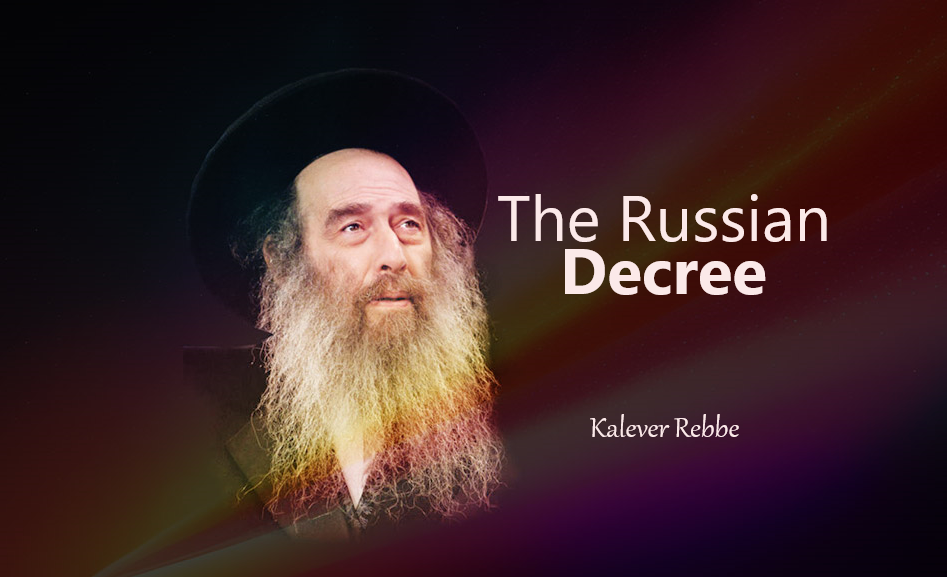
Perfect Prayer
How would you like to have the ability to pray perfectly and to have those prayers answered? It's possible, but first, we must learn what constitutes perfect prayer…

How would you like to have the ability to pray perfectly and to have those prayers answered? It’s possible, but first, we must learn what constitutes perfect prayer.
When we know that Hashem is truly compassionate and that His compassion is infinite and for all beings, we can make every spiritual request. Why? When Hashem answers our prayers for spirituality – our requests for emuna and for getting close to Him, He reveals the purpose of all creation and His entire trait of compassion. This lets us understand Moses’ prayer on behalf of the Jews during the episode of the sin of the spies: “Please forgive the sin of this nation in accordance with the greatness of Your kindness, and as You have forgiven this nation from Egypt until now” (Numbers 14:19).
Moses said to Hashem, “Just as You forgave them in the past, forgive them now as well.” What kind of argument is that? On the contrary – if, after all of the times that Hashem forgave them, they sinned again, how do they deserve more forgiveness?
Moses knew very well that Hashem wanted to forgive the nation of Israel because He wanted them to do teshuvah. Therefore, Moses did not request forgiveness because the nation of Israel deserved it; he requested forgiveness because they did not deserve it! Moses knew that by granting forgiveness, Hashem reveals His compassion. Moses invoked Divine compassion by revealing the Divine attributes that Hashem taught him and said, “Hashem is patient and extremely kind….” (Numbers 14:18). Moses  was saying to Hashem, “Now is the time to reveal all of the traits of compassion that You taught me. Now You must forgive the people, because this is Your way and Your true will.”
was saying to Hashem, “Now is the time to reveal all of the traits of compassion that You taught me. Now You must forgive the people, because this is Your way and Your true will.”
Hashem accepted Moses’ request and forgave. But the Gemara goes a step further and says: “Hashem told Moses: ‘Moses, You have revived Me with your words’” (Berachot 32a).
Reviving Hashem? What does this possibly mean?
Hashem told Moses, “My entire will is to forgive and have compassion on the nation of Israel. But I cannot forgive without prayer and supplication. This is a spiritual law. Therefore, your outcries and arguments ‘helped’ Me forgive them as I truly wanted to. As such, Moses, you revived Me with your words!”
Anyone who asks Hashem for help in spiritual growth is eliciting Hashem’s will, because nothing Hashem loves more than giving us Torah, emuna, and bringing us close to Him. Therefore, you can pray to Hashem for spiritual growth with all your power because you are, in effect, helping Hashem to do what He wants to do!
Do you realize what this means? When we ask for emuna, the ability to pray, to learn Torah, to rectify ourselves and to get close to Him, we are praying for Hashem because this is His will!
When we pray that Hashem’s will should be actualized, we pray on behalf of Hashem. Hashem yearns and waits for His sovereignty to be revealed, for His name to be exalted and sanctified, and for all of us to do teshuvah. So, when we pray for these things, we are praying for Hashem! Such prayers will surely be answered. What’s more, Hashem wants to bestow all kinds of abundance on His children; these type of prayers invoke the blessings of abundance.
This type of prayer triggers salvations because it is called “perfect prayer”: it’s prayer without any personal interests, prayer that is totally for the sake of performing Hashem’s will.
On the other hand, imperfect prayer is that which contains self-interest and personal will.
With perfect prayer, a person casts aside all personal will. His entire intent is only to want what Hashem wants, to want Hashem’s will to be actualized.
This is also known as “prayer with complete emuna.” Complete emuna means that a person knows that “there is no other than Him” (Deuteronomy 4:35); there is no “me” or “I.” There is only Hashem. Therefore, all prayers are only on behalf of Hashem. A person’s prayer refers only to the will of Hashem and not to his own will, because his own will is the will of Hashem.
Prayer on behalf of human beings is a lack of faith. But if that is the case, how do we pray? An example: if a person is ill, it is because he has sinned. The true will of Hashem is that he will do teshuvah and rectify the spiritual cause of his illness, and then he will recover. Thus, prayer must be on behalf of Hashem so that He will help this person do teshuvah, which will mean that Hashem’s intent will be fulfilled, and in consequence the person will be healed.
How much more does this idea apply when we pray for spiritual matters. Then it is easy to understand that the entirety of our prayer is on behalf of the will of Hashem; Hashem created a person to serve Him and come close to Him, and not to be an animal on two legs. Every time we engage in prayer to free ourselves from our animal nature and our cravings and to come close to Hashem, we are engaging in prayer on behalf of Hashem’s will and Hashem’s honor: that His children will develop as He wants them to develop. Therefore, when we recite such a prayer, we may ask for immediate salvation, because once again, we’re praying for Hashem.
May Hashem help us cling to Him and to do His will always, and may His monarchy and compassion be revealed to the whole world, speedily, amen!












Tell us what you think!
Thank you for your comment!
It will be published after approval by the Editor.